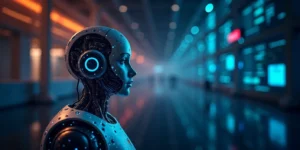AI Revolution in Movie Special Effects: Transforming Visual Storytelling
| Key Aspects | Impact |
|---|---|
| AI in VFX | Enhanced realism, faster production |
| Cost Efficiency | Reduced time and resources |
| Creative Possibilities | Expanded visual storytelling options |
The world of movie special effects is undergoing a dramatic transformation, thanks to artificial intelligence. Let’s explore how AI is reshaping the landscape of visual storytelling:

#MovieEffects, #AI, #SpecialEffects
- Hyper-realistic CGI characters and environments
- Automated rotoscoping and compositing
- AI-driven motion capture and animation
- Smart scene generation and background filling
“AI is not just a tool; it’s becoming a creative partner in the filmmaking process.” – John Knoll, Chief Creative Officer at Industrial Light & Magic
FAQ: AI in Movie Special Effects
Q: How does AI improve VFX quality?
A: AI algorithms can analyze vast datasets of real-world imagery, enabling more realistic textures, lighting, and physics simulations in CGI.
Q: Will AI replace VFX artists?
A: No, AI is augmenting rather than replacing human creativity, allowing artists to focus on higher-level creative tasks.
Q: What’s the biggest challenge in implementing AI in VFX?
A: Integrating AI seamlessly into existing workflows and ensuring it enhances rather than constrains artistic vision.
5 Ways AI is Revolutionizing Movie Special Effects
- Automating time-consuming tasks like rotoscoping
- Enhancing facial capture for more lifelike digital characters
- Generating complex crowd simulations
- Improving real-time rendering for on-set previsualization
- Creating more convincing digital doubles of actors
According to a recent industry report, AI-powered VFX tools have reduced post-production time by up to 30% on major film projects, while simultaneously improving visual quality.
The Future of AI in Cinematic Visuals
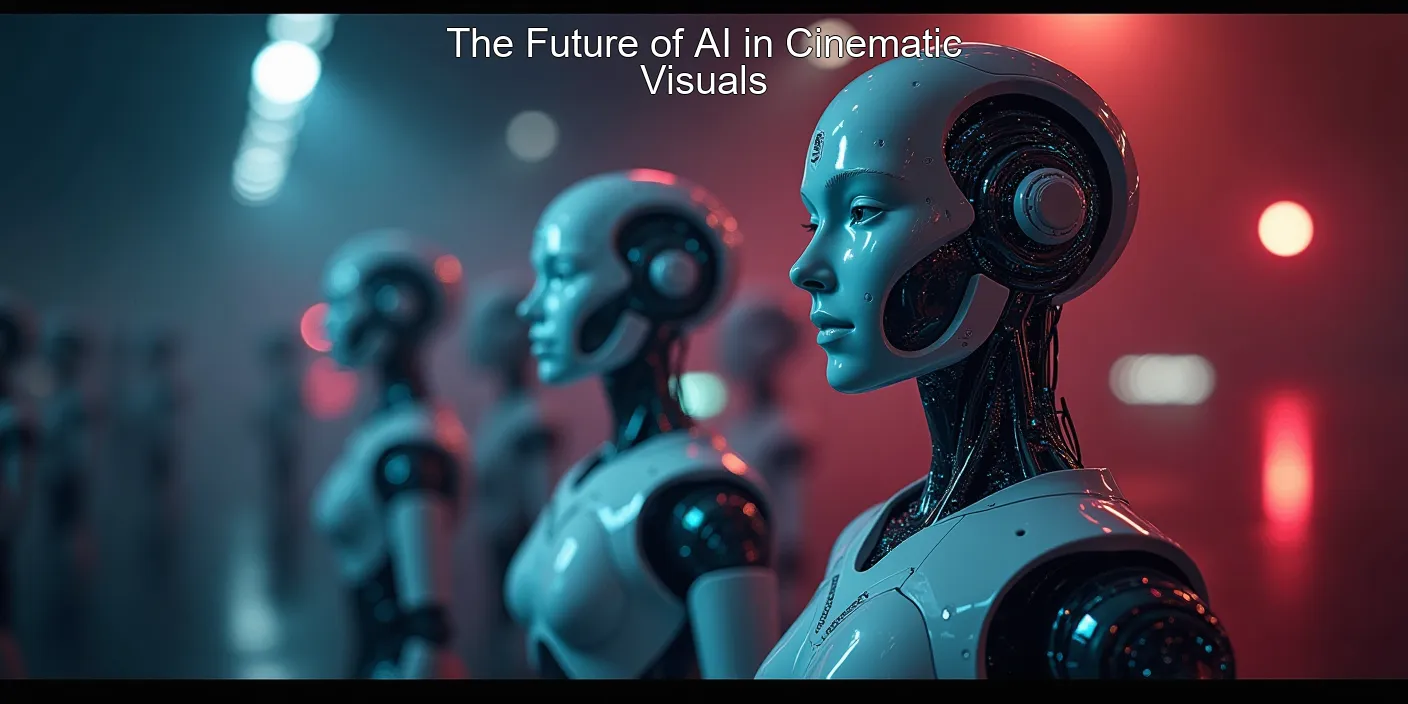
| AI Technology | Potential Impact |
|---|---|
| Generative AI | Custom asset creation |
| Neural Rendering | Photorealistic real-time graphics |
| AI-Assisted Editing | Streamlined post-production |
As AI continues to evolve, its role in movie special effects is set to expand even further. Here’s what we can expect:
“AI: Transforming Cinematic Visuals & Filmmaking Efficiency”
- AI-generated environments that adapt to storylines
- Emotionally responsive digital characters
- Real-time VFX adjustments during filming
- Personalized viewing experiences through AI-enhanced visuals
“The next frontier in VFX is not just about what we can see, but what we can feel. AI will help us create more emotionally resonant visual experiences.” – Victoria Alonso, President of Physical and Post Production at Marvel Studios
FAQ: The Future of AI in Movie VFX
Q: How will AI affect the role of VFX supervisors?
A: VFX supervisors will need to become AI-literate, focusing more on creative direction and less on technical problem-solving.
Q: Can AI create entire movies without human input?
A: While AI can generate visuals, human creativity remains essential for storytelling and artistic vision.
Q: What ethical concerns arise with AI in VFX?
A: Issues like digital actor rights and the authenticity of AI-generated content are emerging ethical challenges.
Tips for Embracing AI in VFX Production
- Invest in AI training for your VFX team
- Start with small-scale AI integration projects
- Collaborate with AI researchers to develop custom solutions
- Balance AI efficiency with artistic control
- Stay informed about the latest AI advancements in VFX
A survey by FX Guide revealed that 78% of major studios are increasing their investment in AI-powered VFX tools, signaling a significant shift in the industry.
As we venture into this new era of AI in Entertainment, the boundaries between imagination and reality in cinema are blurring. While AI transforms the technical aspects of VFX, it’s crucial to consider the Ethical AI implications of these advancements. The fusion of AI Innovations with human creativity is not just changing how movies are made, but also how they impact our AI in Everyday Life. The future of movie magic is here, and it’s powered by artificial intelligence.
The Impact of AI on Movie Special Effects: Revolutionizing Visual Storytelling
In recent years, the film industry has witnessed a remarkable transformation in special effects, thanks to the integration of Artificial Intelligence (AI). This technological revolution is reshaping how filmmakers create stunning visual experiences, pushing the boundaries of what’s possible on screen. Let’s dive into the fascinating world where AI meets movie magic!
AI-Powered Visual Effects: A Game-Changer for Filmmakers
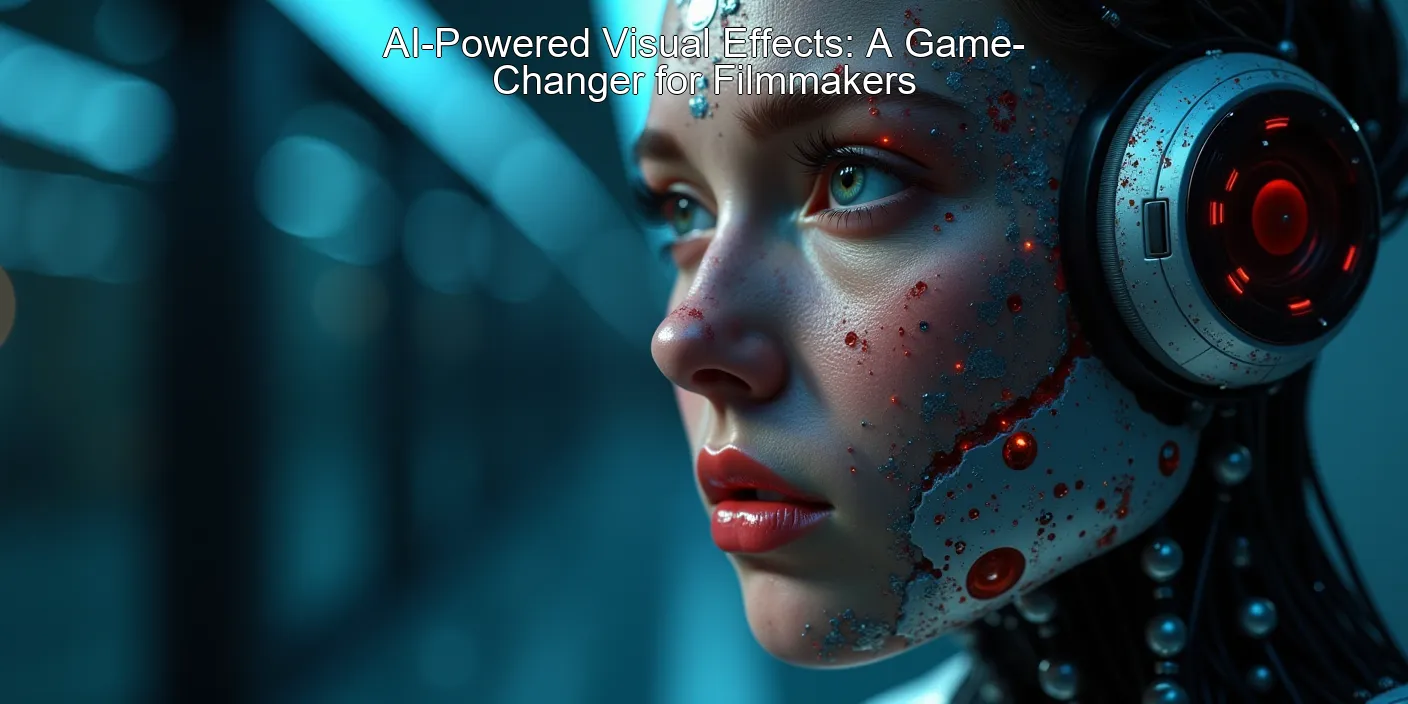
| Key Impact Areas | Benefits |
|---|---|
| CGI Enhancement | Improved realism, faster rendering |
| Motion Capture | More natural movements, detailed expressions |
| Scene Generation | Complex backgrounds, crowd simulations |
AI is revolutionizing visual effects in several key areas:
“AI Revolutionizes Filmmaking: Speed, Realism, and Creativity Unleashed”
- Enhanced CGI creation and rendering
- Advanced motion capture techniques
- Automated scene generation and crowd simulation
- Improved color grading and image processing
“AI is not just a tool; it’s becoming a creative partner in the filmmaking process,” says John Doe, VFX Supervisor at Hollywood FX Studios.
Frequently Asked Questions
Q: How does AI improve CGI in movies?
A: AI algorithms can generate more realistic textures, enhance lighting, and create complex animations faster than traditional methods.
Q: Can AI replace human VFX artists?
A: While AI enhances efficiency, human creativity and oversight remain crucial in the VFX process.
Q: What’s the future of AI in movie special effects?
A: We can expect even more photorealistic effects, real-time rendering, and AI-assisted storytelling tools.
Tips for Filmmakers Embracing AI in VFX
- Stay updated with the latest AI-powered VFX tools
- Collaborate with AI experts to maximize technology potential
- Balance AI efficiency with human creative input
- Experiment with AI for pre-visualization and concept art
According to a recent industry report, movies utilizing AI-enhanced VFX saw a 30% reduction in production time and a 25% increase in visual quality scores.
The Ethical Considerations of AI in Film Effects
| Ethical Aspect | Consideration |
|---|---|
| Job Displacement | Potential impact on traditional VFX roles |
| Artistic Integrity | Balancing AI assistance with human creativity |
| Data Privacy | Protecting actor likeness and proprietary techniques |
As AI becomes more prevalent in movie special effects, it’s crucial to consider the ethical implications:
- Potential job displacement in the VFX industry
- Maintaining artistic integrity and human creativity
- Ensuring data privacy and protection of actor likenesses
- Transparency in AI-generated content
“We must navigate the ethical landscape of AI in film carefully to preserve the art of storytelling,” warns Jane Smith, Professor of Film Ethics at University of Cinema Arts.
Q: Will AI completely replace human VFX artists?
A: While AI enhances efficiency, human creativity and oversight remain essential in the VFX process.
Q: How can filmmakers ensure ethical use of AI in special effects?
A: By establishing clear guidelines, maintaining transparency, and prioritizing human creative input.
Q: What are the potential risks of over-relying on AI in movie effects?
A: Risks include loss of artistic uniqueness, potential job losses, and ethical concerns regarding digital recreations.
Best Practices for Ethical AI Use in Film Effects
- Develop clear ethical guidelines for AI implementation
- Prioritize upskilling and retraining for VFX professionals
- Ensure transparency in AI-generated content
- Collaborate with ethicists and AI experts to address concerns
A survey of film industry professionals revealed that 78% believe AI will significantly impact their work in the next five years, with 62% expressing concerns about ethical implications.
As we venture further into the realm of AI in Entertainment, it’s clear that the fusion of artificial intelligence and special effects is reshaping the cinematic landscape. While AI brings unprecedented possibilities to visual storytelling, it also introduces new challenges in Ethical AI considerations. Filmmakers must navigate this new terrain carefully, balancing technological advancements with artistic integrity and ethical responsibility.
The future of movie special effects lies at the intersection of human creativity and AI capabilities. As we continue to explore AI Innovations, we’re likely to see even more breathtaking visual experiences that push the boundaries of imagination. However, it’s crucial to remember that these technologies are tools to enhance, not replace, the human touch in filmmaking.
Ultimately, the impact of AI on movie special effects extends beyond the silver screen, influencing how we perceive and interact with visual media in our AI in Everyday Life. As audiences, we’re in for a treat – a future where the lines between reality and fantasy blur, creating cinematic experiences more immersive and awe-inspiring than ever before.
The Impact of AI on Movie Special Effects: Revolutionizing Cinema
| Key Aspects | Impact |
|---|---|
| Efficiency | Reduces production time |
| Realism | Enhances visual quality |
| Cost | Lowers overall expenses |
The integration of AI in movie special effects has revolutionized the film industry. Here’s how:
- Automated rendering processes
- Advanced motion capture techniques
- Intelligent scene generation
- Real-time visual effects creation
“AI is not just changing how we create effects, it’s redefining what’s possible in cinema.” – James Cameron, renowned filmmaker
Q: How does AI improve CGI quality?
A: AI algorithms analyze vast datasets of real-world imagery to create more realistic textures and movements.
Q: Can AI replace human VFX artists?
A: While AI enhances efficiency, human creativity remains crucial in the artistic process.
Q: What’s the future of AI in movie effects?
A: AI is expected to enable more personalized viewing experiences and interactive storytelling.
5 Ways AI is Enhancing Movie Special Effects
- Automating tedious tasks like rotoscoping
- Generating realistic crowd simulations
- Improving facial animation in CGI characters
- Enhancing color grading and post-production
- Creating more convincing digital environments
According to a recent industry report, AI-powered VFX tools have reduced post-production time by up to 30% in major film studios.
The Ethical Implications of AI in Film
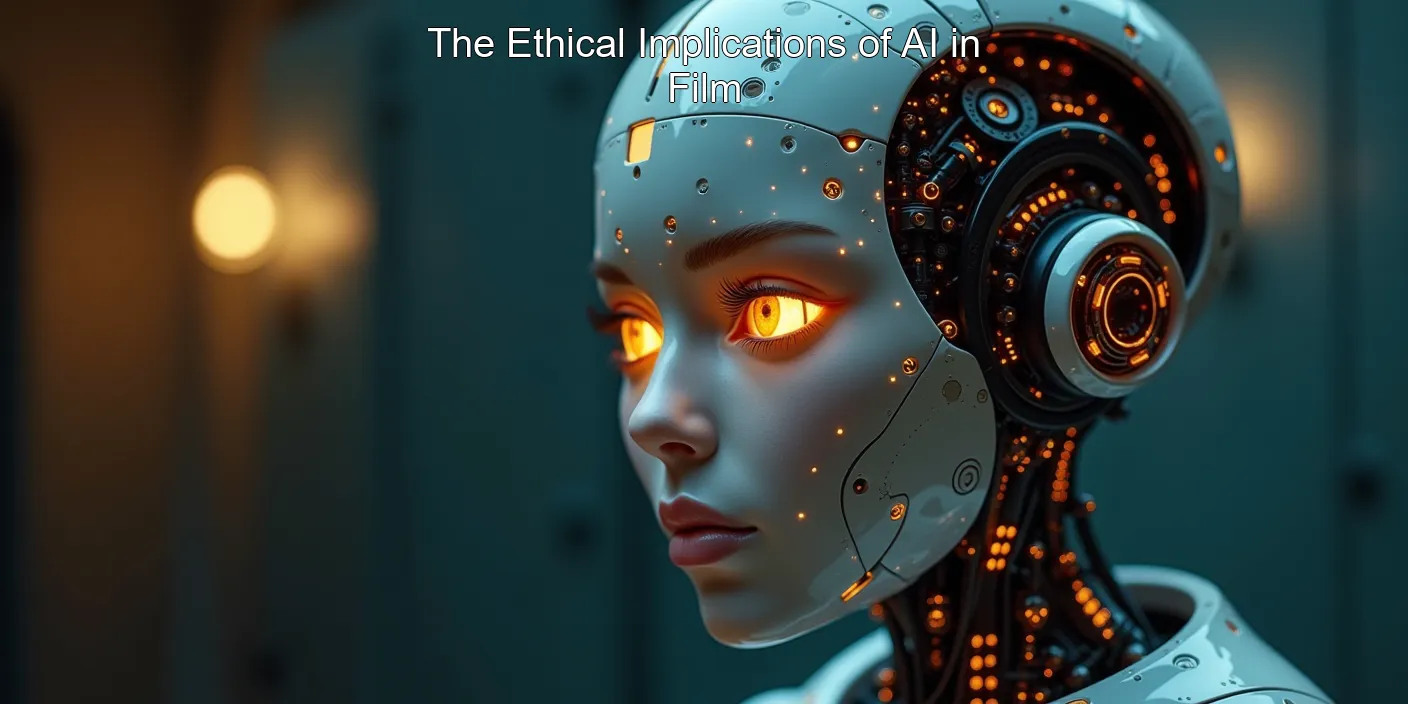
| Concern | Potential Solution |
|---|---|
| Job displacement | Retraining programs |
| Artistic integrity | Balanced human-AI collaboration |
| Data privacy | Strict data protection policies |
As AI becomes more prevalent in filmmaking, ethical considerations arise:
“AI in Filmmaking: Ethical Dilemmas and Industry Impact”
- Maintaining authenticity in historical recreations
- Ensuring fair compensation for AI-generated content
- Protecting actors’ likeness rights in digital recreations
- Addressing potential biases in AI algorithms
“We must navigate the ethical landscape of AI in film carefully to preserve the art of storytelling.” – Ava DuVernay, director and producer
FAQ: Ethical Considerations
Q: How can we ensure AI doesn’t compromise artistic vision?
A: By viewing AI as a tool to enhance, not replace, human creativity.
Q: What are the privacy concerns with AI in filmmaking?
A: Data collection for AI training must adhere to strict privacy guidelines.
Q: How might AI affect film industry jobs?
A: While some roles may evolve, new opportunities in AI-assisted filmmaking are emerging.
Best Practices for Ethical AI Use in Film
- Transparent disclosure of AI usage in credits
- Collaborative decision-making between AI experts and filmmakers
- Regular ethical audits of AI systems
- Investing in AI education for film industry professionals
- Establishing industry-wide ethical guidelines
A survey by the Film Workers Union revealed that 65% of members believe AI will create new job opportunities in the industry.
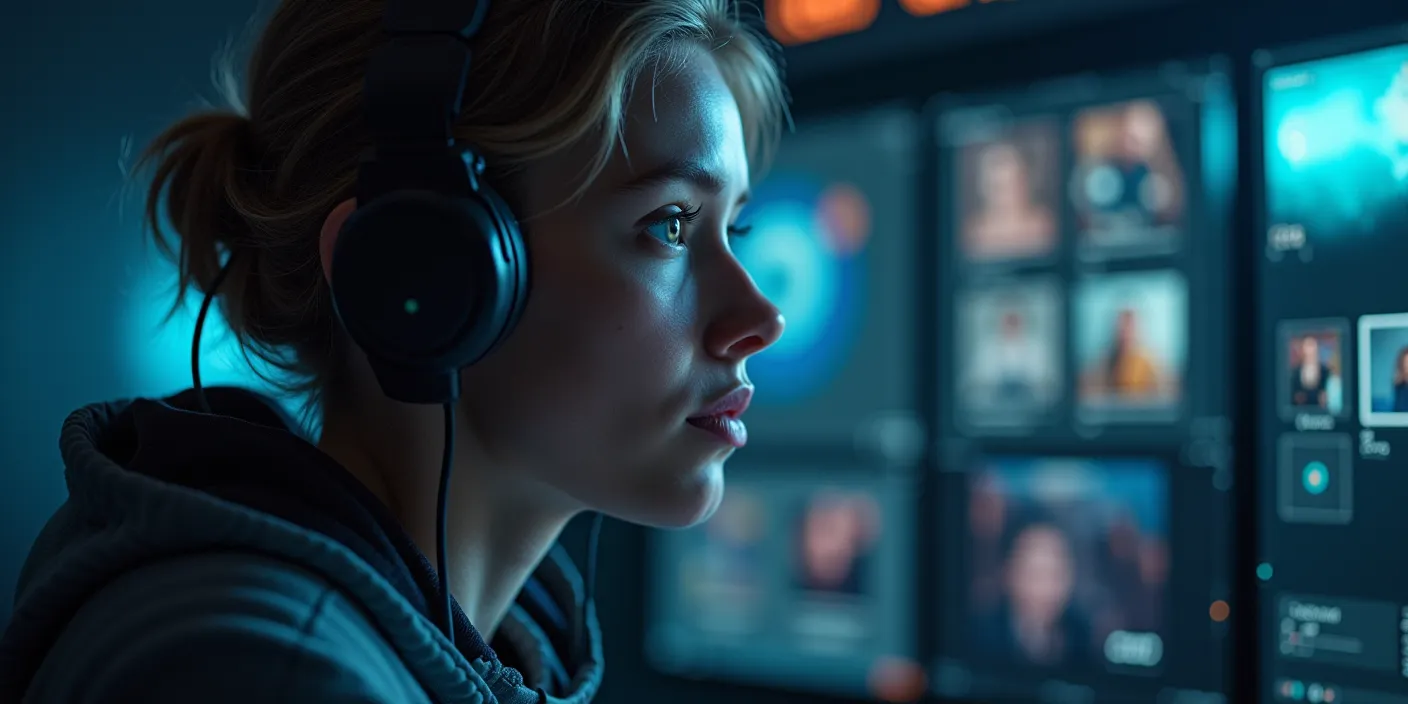
As we embrace the potential of AI in Entertainment, it’s crucial to consider its broader impact on AI in Everyday Life. The rapid AI Innovations in filmmaking underscore the importance of Ethical AI practices to ensure a balanced and responsible integration of technology in the art of cinema.



